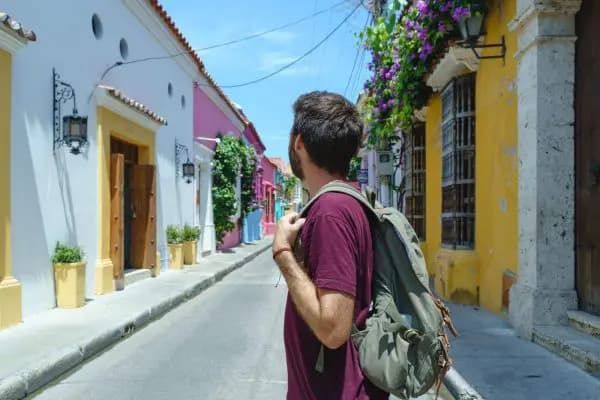Important Changes in Colombia’s Visa Policy

In this article, we explore recent changes in Colombia’s visa regulations and what they mean for migrants interested in settling in the country.
Emigration and Immigration in Colombia
Throughout its history, Colombia has been known as a country of emigrants, where many citizens have sought new opportunities outside its territory.
As a result, the government’s efforts have focused on strengthening ties with the Colombian community abroad.
However, recently there has been a change in migration patterns to Colombia, with more and more people deciding to settle in the country.
This change requires a new visa regulation that makes Colombia an attractive destination for immigrants from all over the world.
Resolution 5477 of 2022
Thus, the Ministry of Foreign Affairs by means of Resolution 5477 of 2022 introduced relevant changes in the formalities, terms and requirements for visa applications, as well as the introduction and suppression of some visa sub-categories.
First, in the category of visitors or Visa Type V, 4 subcategories were introduced:
1. Seasonal Agricultural Worker:
It was created to develop seasonal agricultural work under programs established by the Ministry of Agriculture and Rural Development or the governorates together with the agricultural sector, the Ministry of Labor, health and social protection.
2. Promotion of internationalization:
It is intended for the development of productive activities, innovation or research oriented to the adoption or adaptation of technologies that complement or develop products, processes or services that contribute to strengthen the country’s competitiveness, also for activities that contribute to incorporate knowledge to the activities or professions pre-established by the Directorate of Migration, Consular Affairs and Citizen Services, which contribute to the internationalization of the country.
3. TLC entrepreneurs:
Its purpose is to facilitate the mobility of entrepreneurs or business people, in application of commitments acquired by Colombia within the framework of Free Trade Agreements signed and in force with other States.
4. Digital Nomad Visa:
Applies only for self-employed workers or workers linked to foreign companies to provide remote work or teleworking services from Colombia through digital means.
It also applies to start a digital content or information technology venture of interest to the country.

Secondly, in the category of Migrant or Type M Visa, visas were included for:
1. Promotion of Internationalization:
Intended for foreigners with a master’s degree, doctorate or post-doctorate in basic or applied sciences, engineering, mathematics and related fields, whose profiles are in line with the priorities required by the country in its public and private internationalization plans; or for professionals in areas pre-established by the Directorate of Migration, Consular Affairs and Citizen Services, whose practice contributes to the adoption and/or adaptation of technologies that strengthen competitiveness in the country.
2. Statelessness:
It is for foreigners who have been recognized by the Colombian State as stateless persons.
Third, in the category of Resident or Visa Type R, was included:
1. By application of the Temporary Protection Statute for Venezuelan migrants.
2. Peace Special:
Created to comply with Decree Law 831 of May 18, 207, which states that foreigners who are former members of the FARC-EP, who have completed the process of laying down their weapons, have submitted to the Final Agreement for the termination of the conflict and the construction of a stable and lasting peace, and have made the transition to legality.
Changes to Existing Visas
Finally, there were also important changes regarding the conditions of existing visas, as additional requirements were introduced and it was clarified that both the study and issuance process will be completely virtual, among other things.
Cybergraphy
https://www.oas.org/es/sadye/documentos/FUPAD_CartillaDerechos.pdf
Recommended articles
Services that might interest you
Immigration Lawyers Colombia
Expert advice on visas, ID cards, nationality, and more. Trust our immigration lawyers in Colombia. Contact us today for reliable legal assistance!
Would you like some advice?
Please fill out the following form, and we will get in touch with you.
- Phone:300 388 4986
- WhatsApp:Click to start your WhatsApp chat

